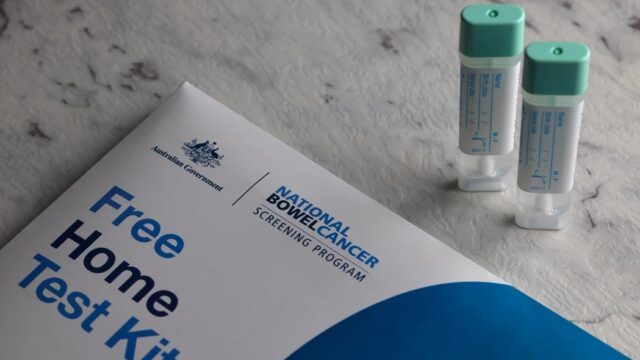Advertisment
Avoiding wasted medicines in hospital pharmacy
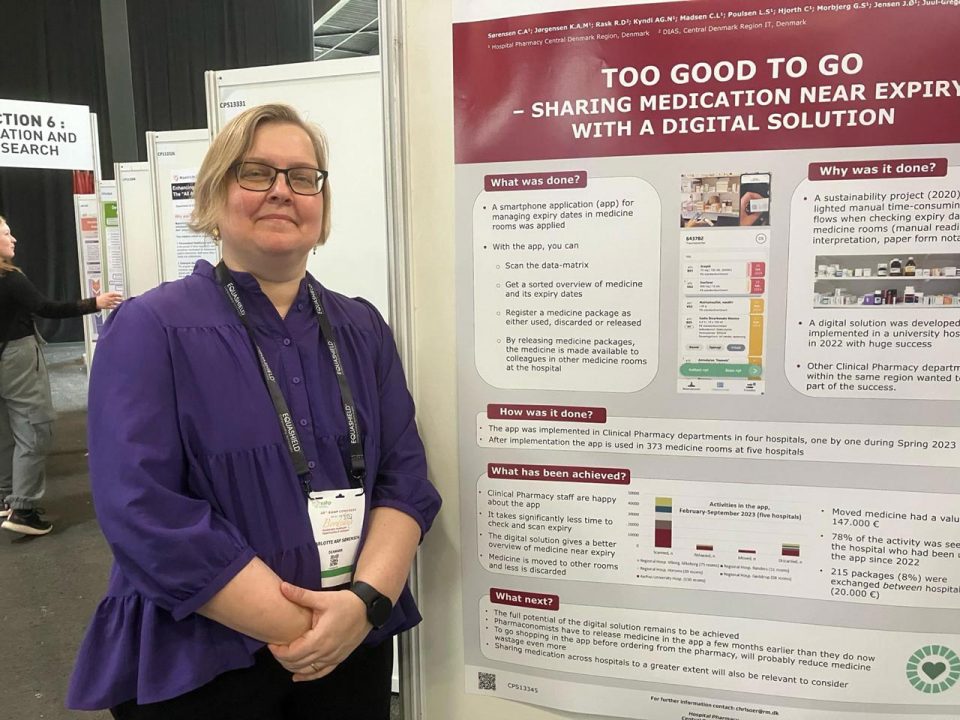
28th EAHP Congress Highlights
The theme of the 28th EAHP congress was Sustainable healthcare – opportunities and strategies and several posters addressed different approaches to avoiding or minimising wastage of medicines in hospital pharmacy.
Pousada-Fonseca and colleagues (Móstoles, Spain; poster 6ER-005) undertook a retrospective study to estimate the costs of wastage due to dose modifications and discontinuation of oral anti-cancer treatment. A total of 1239 prescriptions were identified for enzalutamide, ribociclib, niraparib and lenvatinib. Of these, 63 were interrupted and on 34 occasions patients had tablets remaining. The total cost of drugs wasted in this way amounted to €56,459 – a sum that would have covered the cost of 17 prescriptions, the authors calculated. Although only a small number of prescriptions were discontinued, the costs were considerable because of the price of the medicines. At present Spanish law bans the return of dispensed medicines to the pharmacy services and therefore this represents a hidden cost of cancer care. One option might be for hospital pharmacists to be permitted to decide whether unused medicines could be returned for re-dispensing, they suggest.
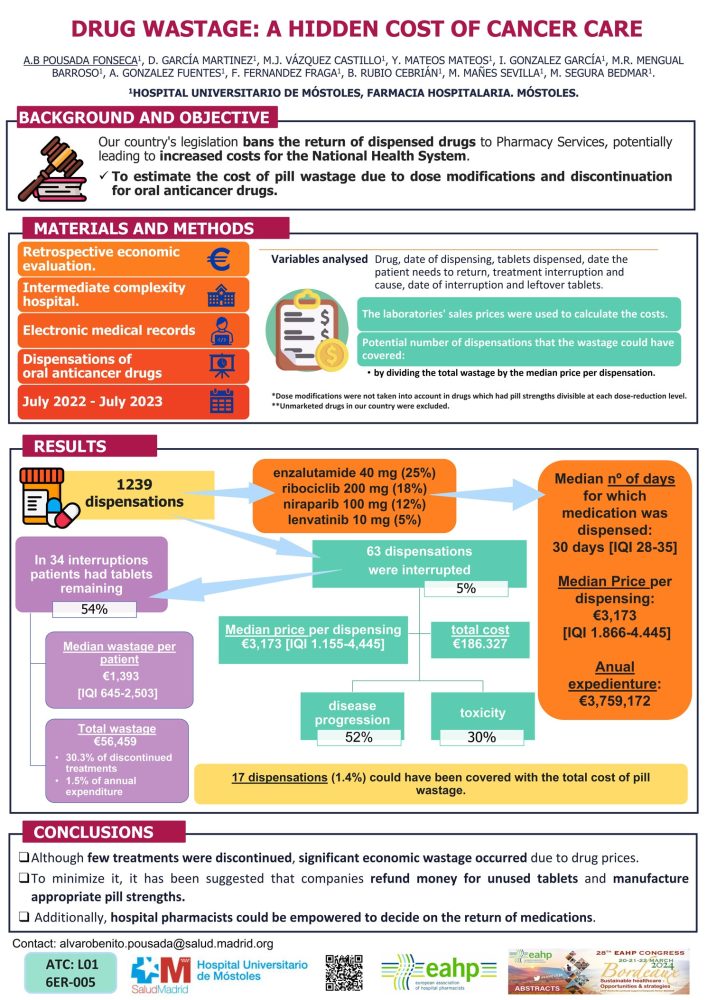
Re-dispensing of oral anti-cancer medicines (OAM) is exactly what Akgöl and colleagues (Amsterdam, The Netherlands;) described in their poster. They calculated that the average monthly expenditure on OAM was €3200 per patient. Approximately 33% pf patients discontinue treatment and 50% pf these have redundant medicines at home. The authors developed a rigorous procedure to identify and assess the quality of these ‘left over’ OAM. Implementation of this procedure over a one-year period resulted showed that 79% of returned medicines were suitable for re-dispensing and the value of these was €483,301. The authors concluded that wider implementation of this scheme would result in a significant reduction in financial waste and environmental burden.
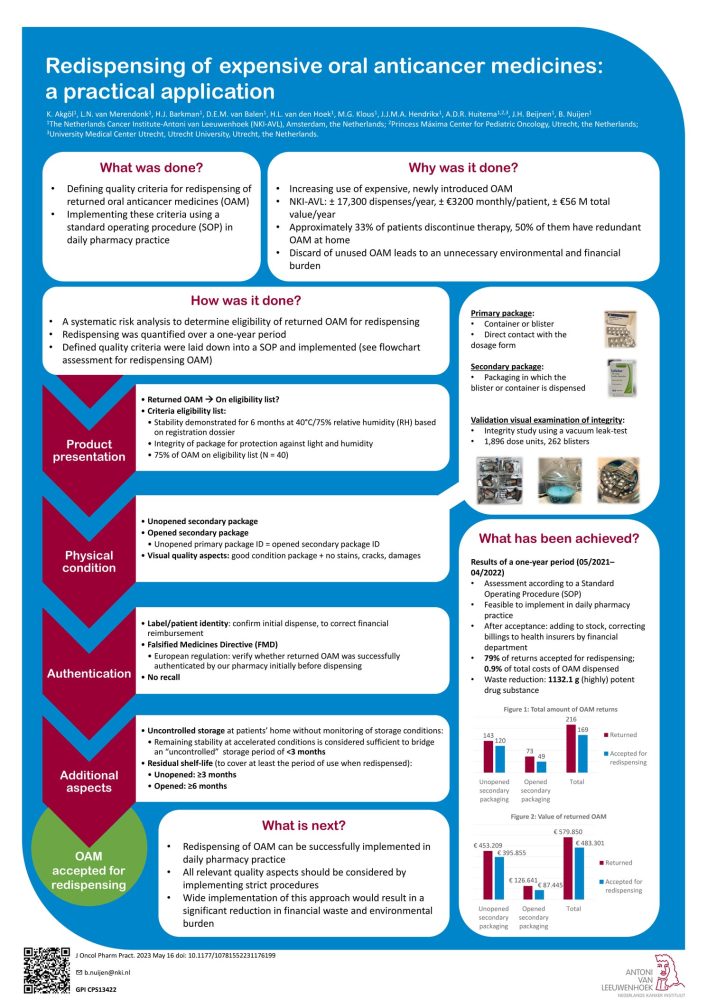
Reducing wastage at ward level
Sørensen and colleagues (Central Region, Denmark) described how a mobile phone app had been developed to scan medicine packs on wards and speed up the process of expiry-date checking. In 2020 a sustainability project had shown that manual expiry-checking was a particularly time-consuming task for pharmacy staff. Once scanned, packs can be marked as ‘used’, ‘discarded’ or ‘released’. ‘Released’ medicines are then available for use on other wards in the hospital. Lead author Charlotte Sørensen explained that this is important because many wards hold large stocks of medicines which are delivered from a central (remote) unit.
The app was progressively implemented in four hospitals starting in Spring 2023. It has given pharmacy staff a useful overview of medicines nearing expiry. So far, medicines to the value of €147,000 have been moved and some 215 packages (value €20,000) have been exchanged between hospitals. The full potential of the app has yet to be reached but it is expected that for wards ‘to go shopping’ in the app before ordering from the pharmacy will probably reduce medicines’ wastage even further, the authors suggest.
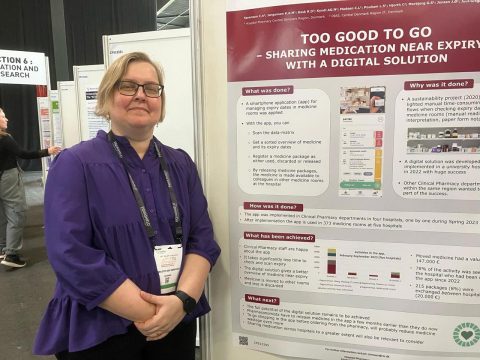
The 28th EAHP Congress took place in Bordeaux, France 20th-22nd March 2024. The congress theme was: Sustainable healthcare – opportunities and strategies.



